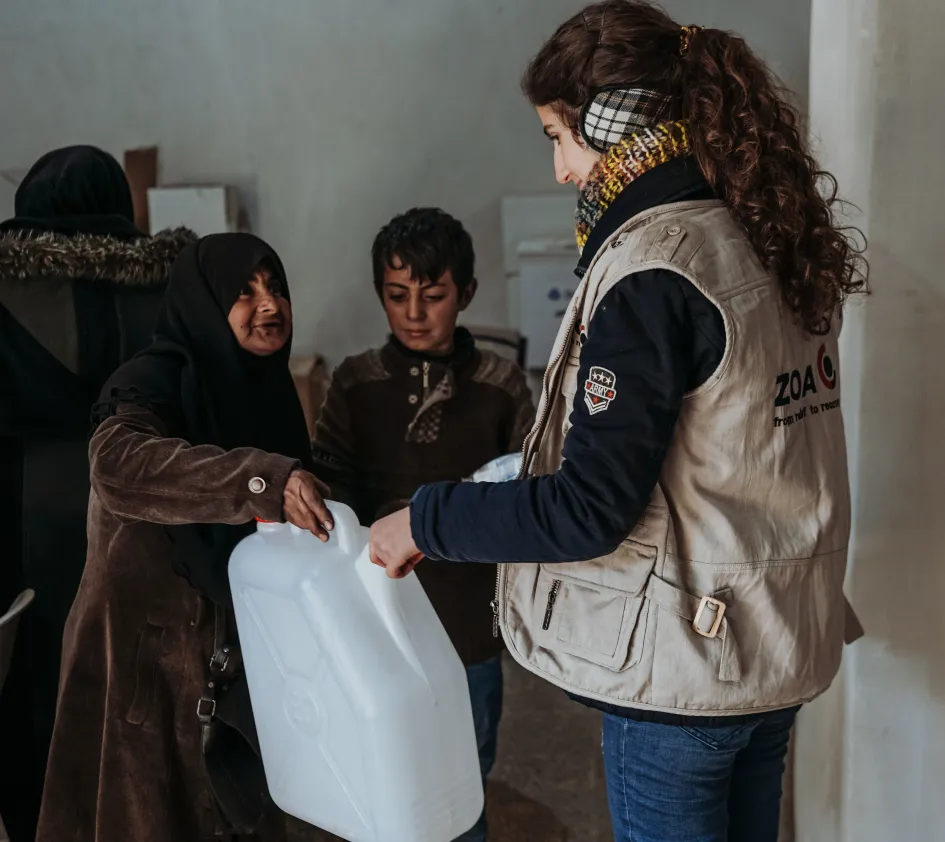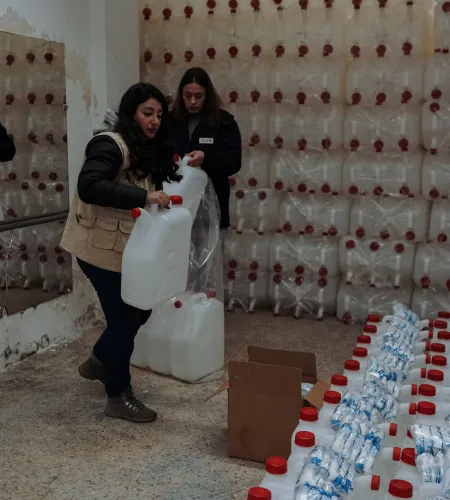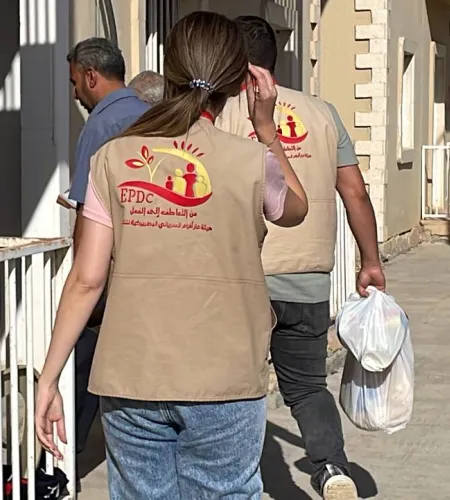According to the United Nations, at least 145,600 people are currently displaced, many of them from Sweida governorate. Around 95,000 have remained displaced within Sweida, while others have fled to Daraa and Rural Damascus. Access to the most affected areas is severely limited due to ongoing insecurity, road blockages, and government restrictions.

ZOA responds to growing needs following violence in southern Syria
Following weeks of deadly conflict, a fragile ceasefire has brought temporary calm to the southern region of Syria. Yet the humanitarian situation remains dire. Violence, displacement, and damaged infrastructure have left thousands of families in urgent need of assistance.
Meeting basic needs in the face of crisis
ZOA, in close cooperation with its national partner EPDC, is preparing a humanitarian response in Daraa governorate. Displaced families are currently being hosted in overcrowded collective shelters such as schools, mosques, churches, and government buildings. Others are staying in makeshift camps. Most shelters lack adequate WASH facilities and are at risk of disease outbreaks due to high temperatures and poor sanitation. In addition, many people are dealing with physical injuries and high levels of psychosocial distress.

To respond to these urgent needs, ZOA and EPDC will distribute essential relief items, including ready-to-eat food parcels, hygiene kits (with soap, jerricans, buckets, menstrual hygiene items), and core non-food items such as blankets and pillows. Daily coordination with local authorities, the Syrian Arab Red Crescent (SARC), and UN agencies ensures that ZOA’s response remains targeted, relevant, and complementary to the work of other organisations.
Local knowledge and collaboration
A key strength of ZOA’s response lies in the longstanding partnership with EPDC, which has a strong presence in the region. With offices, community centres and a team of local staff in Daraa, EPDC has direct access to affected communities and a deep understanding of the local context. It also operates a mobile health clinic in the area.
"Our partnership with EPDC spans more than three years," says Vera Djabali, ZOA’s Country Director in Syria. "Their capacity for rapid response and their trusted presence make it possible to act quickly and effectively when a crisis strikes."

From relief to recovery
"This latest crisis is adding pressure to an already dire humanitarian situation in southern Syria," Vera continues. "The ongoing insecurity and economic hardship are hindering progress towards recovery. ZOA is here not only to support families in their immediate needs during times of crisis, but also to help them rebuild and become more resilient."
Alongside emergency assistance, ZOA and EPDC are also supporting early recovery in Sweida governorate. Activities include restoring critical WASH infrastructure, providing clean water, and supporting farmers with agricultural tools, inputs, and training to strengthen food security and livelihoods.
